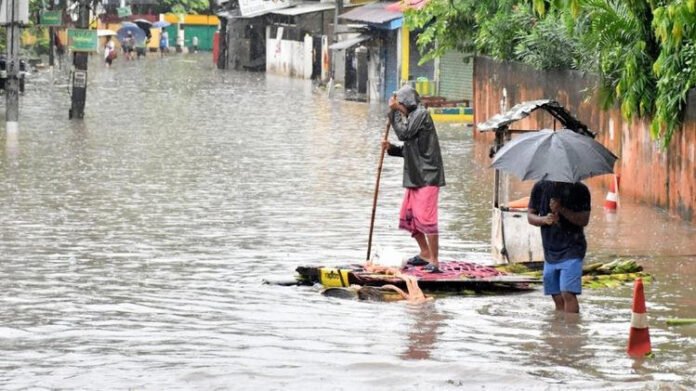Assam continues to battle severe floods as the death toll rises to 26. The latest figures from the state disaster management office reveal that the affected population has dropped to 2.59 lakh. This decrease shows progress in relief and rescue operations.
Heavy monsoon rains caused rivers like the Brahmaputra and Barak to overflow. The floods damaged many districts, causing widespread disruption. Although fatalities have increased, evacuations and receding waters have reduced the number of people impacted.
Read More: Manipur Highway Blockade Triggers Price Hike, Shortages
Death Toll Climbs Amid Flood Crisis
The flood crisis remains severe as 26 people have died due to drowning and accidents. Rescue teams search for missing persons in the worst-hit districts such as Dhemaji, Lakhimpur, and Dibrugarh.
Chief Minister Himanta Biswa Sarma offered condolences to the families and urged residents to stay alert. “The government is fully engaged in providing relief, medical aid, and shelter,” a senior disaster official said.
Affected Population Falls to 2.59 Lakh
Officials report that the flood-affected population dropped from over 3 lakh to 2.59 lakh. This improvement resulted from successful evacuation drives and better coordination between district administrations.
Relief camps now shelter thousands, providing food and medical support. NGOs and local volunteers have joined government efforts to restore normalcy.
A district magistrate said, “We evacuated thousands from high-risk areas and continue to help displaced families.”
Agriculture and Infrastructure Take a Hit
Floodwaters damaged crops and farmland across Assam’s floodplains. Paddy fields remain waterlogged, threatening the upcoming harvest.
Roads and bridges sustained damage, making relief supply harder to deliver. Several schools and health centers remain closed due to flood impact.
Relief Efforts Gain Momentum
The government deployed the National Disaster Response Force (NDRF), State Disaster Response Force (SDRF), and the armed forces to assist. They use boats and helicopters to reach stranded villagers and deliver essentials.
Medical teams hold health camps to prevent waterborne diseases. They also provide vaccines in affected areas. Authorities distribute food, drinking water, and sanitation kits widely.
Focus on Early Warning and Preparedness
Following this year’s floods, Assam has strengthened early warning systems and river monitoring. Officials also focus on managing dams better.
Long-term flood control plans include embankment repairs and river dredging. Experts stress community awareness and preparedness to reduce losses.
Looking Ahead
As floodwaters recede, the government focuses on rehabilitation and rebuilding. Officials continue to warn people to stay ready for sudden weather changes.
Although the death toll may rise, coordinated efforts help reduce suffering and speed up recovery.


